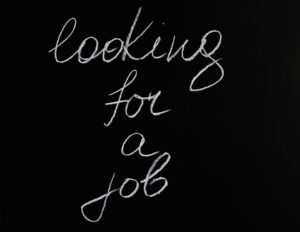In today’s job market, a strong CV is essential—but many candidates include unnecessary details that dilute their impact. We are aware of the must-add details, but do you know what not to include in your CV?
Guy Thornton, founder of Practice Aptitude Tests, explains: “Recruiters are inundated with CVs, so it’s essential that yours stands out. An average employer looks at a CV for around 6–7 seconds, so every line should count.”
Thornton shares which common CV elements to remove, helping you make a stronger impression from the start.
What not to include in your CV
1. Don’t include a picture in your CV
“One of the biggest mistakes people make when submitting their CVs to employers is including a picture of themselves.
“In the UK, it’s illegal to favour candidates due to their age, gender, or ethnicity. Including a picture can lead to unconscious bias and potentially diminish your chances of getting the job altogether.
“The focus of your CV should be on your skills, not your appearance. The last thing you want is for attention to be drawn away from your qualifications or experience, so avoid including pictures in your application.
“That said, there are a few exceptions to this rule. For example, for acting and modelling positions, a photo may be appropriate.”
2. Irrelevant skills
“For each of your past positions, you should tailor the responsibilities and skills listed to be most relevant to the job you are applying for.
“For instance, if you are applying to be a receptionist, you don’t need to elaborate on how great you were at waiting tables at a restaurant.
“Instead, highlight expertise you acquired from that role, such as excellent customer service, problem-solving, and communication skills.
“After all, the hiring manager wants to know why you’d be great for this role.”
3. Don’t include references in your CV
“While references are important, most employers look at them later in the hiring process, so they don’t need to take up space on your CV.
“Simply writing ‘References are available upon request’ at the bottom shows the employer you have them and are willing to provide them, should you move forward to the next stages.”
4. Unnecessary personal information
“Information about your date of birth and marital status is irrelevant to the hiring process and should be left off your CV.
“Hobbies and interests can be a good way for a potential employer to get to know you. However, these are typically addressed later in the application process, such as during an interview.
“If you do include them, keep them brief and focus on transferable skills and experiences that relate to the role.”
5. Overly elaborate language
“Your CV shouldn’t be an essay. Hiring managers should be able to look at your CV and quickly identify the most important aspects of who you are and what you have to offer.
“Keeping your language succinct and to the point means the employer doesn’t have to waste time deciphering it, which may lead them to favour you over other applicants.
“If you’re struggling to simplify the language on your CV, examine each sentence carefully and see if you can convey the same point by removing unnecessary words.”
Looking for a new role?
Have you discovered the PA Life jobs board yet? We feature the latest jobs from SecsintheCity, the leading recruited for PAs, EAs and other Executive Support Professionals.















